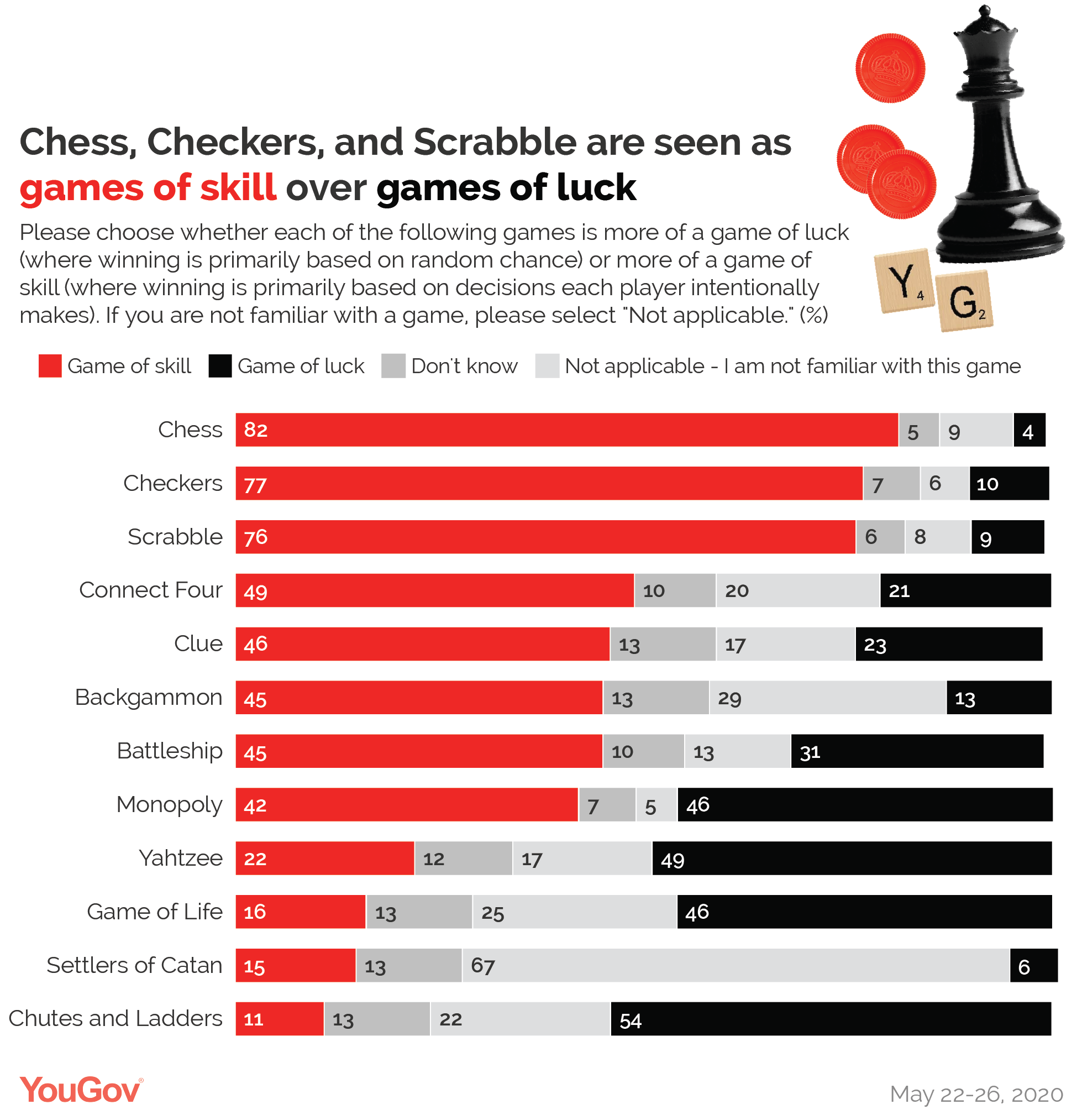Is wagering considered a skill or luck? It’s a question that has perplexed many people. Some believe that successful wagering is all about luck, while others argue that it’s a skill that can be honed and improved over time.
But why is this question so important? Well, for those who enjoy wagering activities such as sports betting or poker, understanding whether it’s more about skill or luck can have a significant impact on their approach and expectations.
In this article, we will delve into the debate and explore the different perspectives surrounding the skill versus luck argument in wagering. So, hang on tight as we unravel the mysteries behind this fascinating topic!

Is Wagering Considered a Skill or Luck?
In the world of gambling, a debate has raged on for centuries: is wagering considered a skill or luck? This question has divided enthusiasts, professionals, and even legislators. Some argue that successful gambling requires a combination of strategic thinking, mathematical analysis, and psychological skills. Others believe that luck plays the dominant role, and no amount of skill can guarantee consistent wins. In this article, we will delve into the various factors that contribute to the outcome of a wager and explore the arguments for both sides.
1. The Role of Skill in Wagering
Many proponents of skill-based gambling argue that mastering certain strategies can significantly improve one’s chances of winning. For instance, in games like poker and blackjack, players can develop a deep understanding of probabilities, apply complex tactics, and make calculated decisions. Skilled players can identify patterns, bluff their opponents, and manage their bankrolls effectively. Additionally, they possess the ability to read other players’ behaviors, control their emotions, and make strategic adjustments on the fly. These skills give them an edge and increase their chances of coming out on top over the long run.
However, it’s important to note that skill alone does not guarantee consistent success in gambling. While skilled players may have a statistical advantage, outcomes are ultimately determined by a mixture of both skill and luck. A player can execute a flawless strategy in a game of poker, only to be dealt a poor hand or face an opponent who gets lucky with improbable cards. In such cases, luck can undermine even the most skilled player’s efforts. Therefore, skill is an important factor but not the sole determinant of success in wagering.
2. The Role of Luck in Wagering
On the other side of the debate, luck is often touted as the primary factor influencing the outcome of a wager. In games like roulette and slot machines, where decisions are purely based on chance, luck becomes the sole factor determining success. Even in skill-based games, luck can play a crucial role in individual outcomes. A skilled poker player may make all the right decisions, but if the cards fall unfavorably, they will face significant losses. Luck can also be a deciding factor in sports betting, as unpredictable events, injuries, or weather conditions can disrupt even the most well-researched predictions.
Additionally, luck also extends beyond the actual games themselves. Being in the right place at the right time, finding a lucky charm, or receiving a favorable dealer can all contribute to a gambler’s success. Superstitions and rituals also play a part in many gamblers’ beliefs, as they seek to attract luck and ward off bad fortune. These intangible factors highlight luck’s role in wagering and suggest that it cannot be wholly dismissed.
3. The Combination of Skill and Luck
While the skill versus luck debate rages on, it is vital to recognize that both elements play a part in the outcome of a wager. Skill can enhance a player’s chances of winning, but it can never entirely eliminate the role of luck. Similarly, luck can lead to surprising victories, but sustained success still hinges on skill. Acknowledging the interplay between skill and luck can help gamblers approach wagering with a balanced mindset.
Experienced gamblers understand that skill provides a long-term advantage, while luck can lead to short-term fluctuations. By combining a solid understanding of the game with an acceptance of the inherent randomness, gamblers can adopt strategies that minimize risk and maximize their chances of success. Successful gamblers also know when to walk away, as no amount of skill or luck can guarantee wins indefinitely.
In conclusion, wagering is a fine balance between skill and luck. While skill can give players an edge in games that involve strategies, luck can still override even the best-executed plans. Recognizing the importance of both factors and adopting a mindset of calculated risk-taking can lead to a more enjoyable and potentially profitable gambling experience. So, whether you’re a skillful strategist or a believer in good fortune, approach wagering with an open mind and a bankroll that you can afford to lose.
Key Takeaways: Is Wagering Considered a Skill or Luck?
- Wagering, such as betting or gambling, is a combination of skill and luck.
- While luck plays a significant role in the outcome, skill and strategy can improve the chances of winning.
- Understanding odds, managing bankroll, and analyzing data are important skills for successful wagering.
- Although luck can influence short-term results, long-term success often relies on skillful decision-making.
- Developing knowledge and experience can enhance one’s ability to make informed wagers and increase the odds of winning.
Frequently Asked Questions
Are you wondering if wagering is considered a game of skill or purely a matter of luck? Look no further! We have answered some common questions to shed light on this intriguing topic.
1. Is wagering purely based on luck?
While there is an element of luck involved in wagering, it is not solely dependent on chance. Skilled bettors analyze various factors such as team statistics, player performance, and past records to make informed predictions. They consider the odds and make strategic decisions based on their knowledge and expertise.
However, it’s important to note that even the most skilled bettor cannot guarantee a win every time. Unexpected events can always influence the outcome of a wager, making luck an undeniable component in the world of betting.
2. Can wagering be considered a skill?
Yes, wagering can indeed be considered a skill. Successful bettors spend time researching and analyzing information to make educated judgments. They learn to interpret data, understand betting markets, and effectively manage their bankroll.
By continuously honing their abilities and staying updated with sports news and trends, skilled bettors increase their chances of making profitable wagers. This demonstrates that wagering can be more than just a gamble; it requires knowledge, strategy, and skill.
3. How does luck play a role in wagering?
Luck plays a significant role in wagering by influencing the outcome of an event. Even with meticulous research and analysis, unexpected circumstances can occur, overturning the most carefully considered predictions.
An underperforming player, an injury, or even inclement weather can instantly turn the tide of a sporting event, highlighting the role luck plays in determining the outcome of a wager. It’s this unpredictability that makes wagering exciting and reinforces the importance of luck in the equation.
4. Can someone be consistently successful in wagering through skill alone?
While skill is undoubtedly crucial in successful wagering, it is challenging to rely solely on skill without factoring in luck. Skilled bettors employ strategies, analyze data, and make calculated decisions, but they cannot completely eliminate the element of chance.
However, by consistently applying their skills and employing effective money management techniques, skilled bettors can increase their overall profitability and minimize losses. Success in wagering lies in striking a balance between skillful analysis and recognizing the role luck plays in the final outcome.
5. Can luck and skill complement each other in wagering?
Absolutely! A combination of skill and luck is often the most successful approach in wagering. Skilled bettors utilize their expertise to analyze statistics, assess probabilities, and make informed decisions. However, they also acknowledge the influence of unpredictable events and embrace the role that luck plays in the final outcome.
By having a solid foundation of skill and a sprinkle of good fortune, bettors can maximize their chances of success. It is the delicate balance between skillfully analyzing data and being open to the whims of luck that can lead to profitable wagering experiences.
Dont Play Poker Before Watching This | Is Poker Skill or Just Luck?
Summary
So, is wagering considered a skill or luck? Well, it’s actually a bit of both. While luck plays a role in determining outcomes, skillful gamblers can make more informed decisions that increase their chances of winning. However, it’s important to remember that gambling should always be done responsibly and within one’s means.
In conclusion, there is a certain level of skill involved in wagering, but luck is also a significant factor. By understanding the game, studying the odds, and making smart choices, gamblers can improve their chances of winning. But ultimately, gambling should be viewed as entertainment, and it’s important to gamble responsibly.
